QuestionHello. I have a 6y/o husky corgi mix. Long story short, she has both hypothyroidism and Cushing's disease, both of which finally appear to be under control and she is being closely monitored by her vet. I mention this because her problem is this: before her Cushing's was diagnosed and she was still obese from the hypothyroidism, I made the mistake of clipping her, thinking that this would make her more comfortable in the hot summer months. Her hair never grew back, and we eventually found out that the Cushing's was likely preventing it. Now that her Cushing's is under control I'm hopeful that her hair will grow back.
However, I've noticed that her hair follicles seem to be clogged with dirty black clumps. All my research seems to indicate that these are comedones, but I was unable to find an example of it occuring ALL OVER THE BODY, as is the case with my dog. My vet, talented though he is with the other conditions, couldn't offer very many options for treatment of it, nor did he seem overly concerned. I've tried a bathing regimen with Selsun Blue, but I don't seem to be getting any results (other than a great smelling dog!).
Have you heard of this before and do you have any recommendations for treatment? I'm hoping that if I can help unclog her pores it might encourage more hair growth.
Thanks,
Debbie
AnswerHi Debbie,
Did your vet second your diagnosis of comedones?
Calcinosis cutis is a type of calcinosis wherein calcium deposits form in the skin. A variety of factors can result in this condition, but in dogs, calcinosis cutis is associated with Cushing's Disease.
I realize your dog has both hypothyroidism and Cushing's disease, and you didn't say what medication your dog is receiving. If it's cortisone, you may want to consider getting a second opinion from another vet or discuss this carefully with your vet and ask about the possibility that the cortisone is actually making the problem worse in this case.
You might ask your vet about using a shampoo called Etiderm for treating Calcinosis cutis. It's better than the older antibacterial shampoos containing benzoyl peroxide.
If your vet has confirmed that your dog has comedones though, the affected areas can also be gently rubbed with the non-prescription astringent Witch Hazel, or with raw virgin coconut oil. Repeat every day or two until the area clears.
Applying benzoyl peroxide shampoos or gels can help a great deal. Usually twice weekly bathing or gel application is sufficient. Also, Renova (a human prescription cream) can be applied nightly to the comedones for 3-4 weeks. It's possible that the areas become infected, and will require antibiotics to treat.
Since Cushings is a disorder in which high natural cortisol levels are causing the hair loss and skin irritation, medicating with cortisone might make the situation worse. If your dog is being medicated with cortisone, you might see some hair growth during the time you're able to cycle back on the cortisone use.
There is a diet supplement made especially for dogs with Cushings, called Cushex Drops:
http://www.nativeremedies.com/petalive/cushex-drops-cushings-disease-remedy.html
Of course, you should run this past your vet before starting your dog on any diet supplement. Once treatment for Cushing begins, you can expect symptoms to fully resolve over the course of 4-6 months. Excess drinking and urinating abate quickly. It may take several months for hair and coat improvement to be observed.
It may also be worthwhile to ask about referral to a veterinary dermatologist. Sometimes it really can help
to see a specialist.
I hope I've been a help.
Best of luck,
Patti

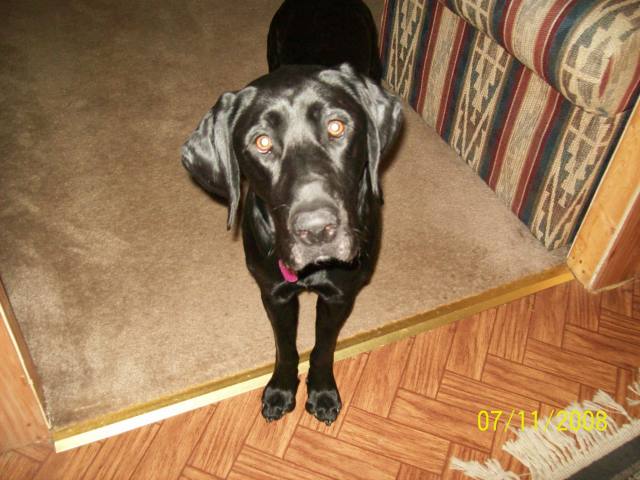 My 2 yr old blacks eating habits.
Question
Pic of Tula
I have a 2yr old black lab. Her an
My 2 yr old blacks eating habits.
Question
Pic of Tula
I have a 2yr old black lab. Her an
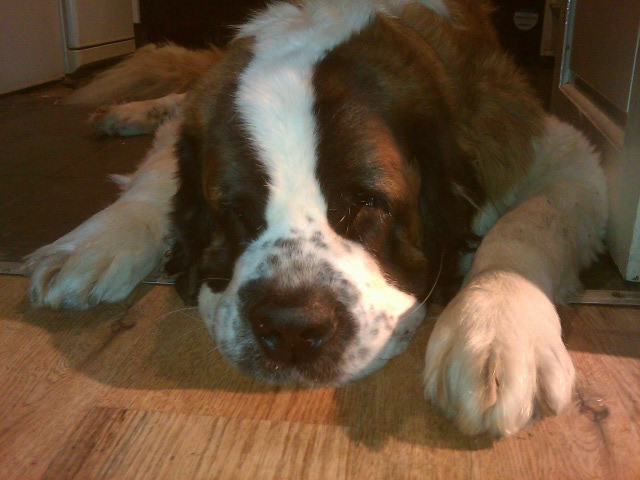 st bernard archy.
QuestionQUESTION: I have a four year old st bernard. I
st bernard archy.
QuestionQUESTION: I have a four year old st bernard. I
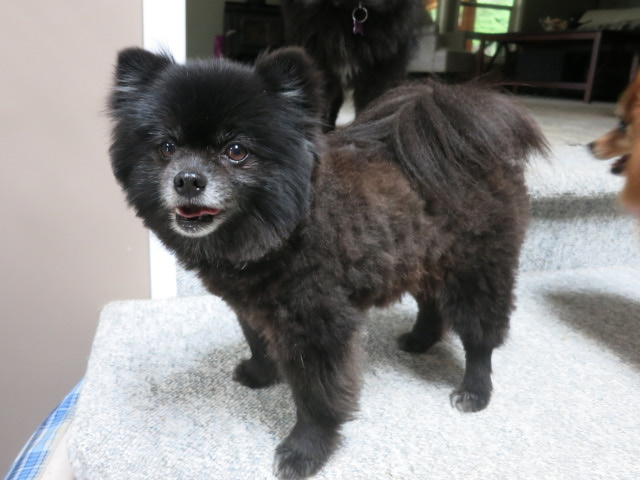 Will my Pomeranian loose his hair
Question
My Pomeranian`s hair c
I have a 5 year
Will my Pomeranian loose his hair
Question
My Pomeranian`s hair c
I have a 5 year
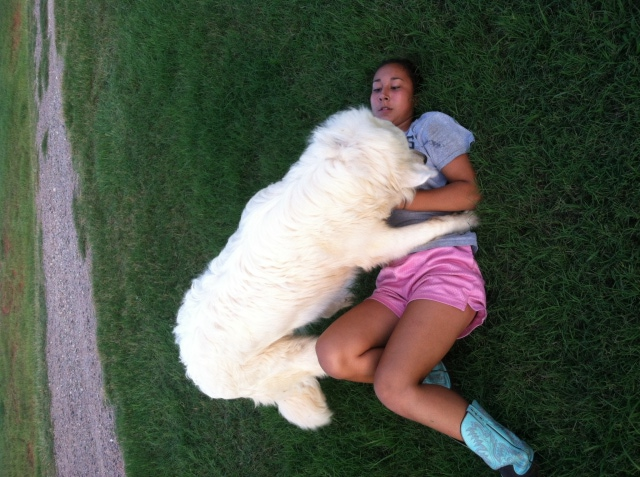 Great Pyrenees
Question
Shirley
We adopted Great Pyrenees femal
Great Pyrenees
Question
Shirley
We adopted Great Pyrenees femal
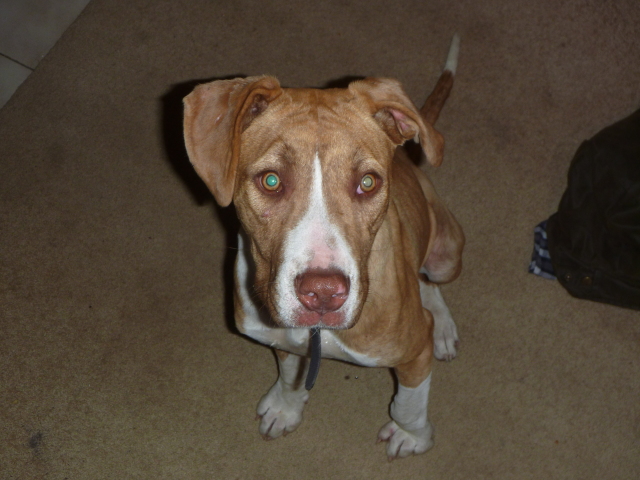 Malnurished Bull Mastif x Great Dane ;
Question
Sticks
Hi,
Ive recently, (the last 24 hours) b
Malnurished Bull Mastif x Great Dane ;
Question
Sticks
Hi,
Ive recently, (the last 24 hours) b